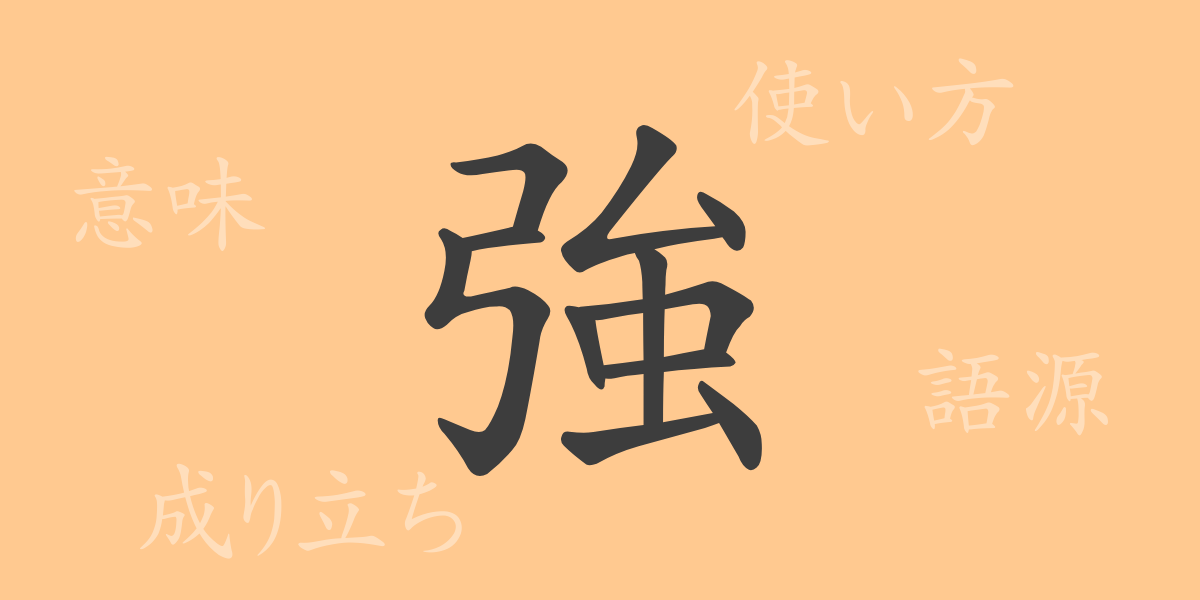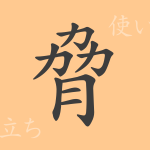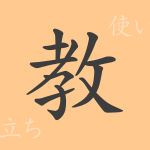Kanji characters in the Japanese language enrich the world of words with their unique shapes and meanings. One of the commonly used kanji, “強(きょう)”, frequently expresses concepts related to strength and force, as its powerful form suggests. In this article, we will delve into the origins, meanings, usages, readings, and related idioms of the kanji “強(きょう)”, uncovering its allure.
Origin of 強(きょう)
The kanji “強(きょう)” can trace its origins back to ancient Chinese oracle bone inscriptions. Initially, it derived from pictographs depicting the act of drawing a bow, eventually coming to mean “strong.” This kanji has been passed down through generations to symbolize physical strength and the firmness of will, representing the act of achieving something through applied force.
Meanings and Usage of 強(きょう)
The kanji “強(きょう)” encompasses meanings such as “strong,” “to compel,” and “to force.” It can refer to physical strength, psychological intensity, or resolute will. Additionally, it is used to describe personality traits and behaviors, as seen in words like “強気(つよき)” (assertive) and “強引(ごういん)” (overbearing).
Readings, Stroke Count, and Radical of 強(きょう)
Due to its frequent use, the kanji “強(きょう)” is familiar to many Japanese speakers.
- Readings: The on’yomi (Chinese reading) is “キョウ(きょう)” and “ゴウ(ごう)”; the kun’yomi (Japanese reading) includes “つよ.い(つよい)”, “つよ.まる(つよまる)”, “つよ.める(つよめる)”, “し.いる(しいる)”, and “こわ.い(こわい)”.
- Stroke Count: “強(きょう)” has a total of 11 strokes.
- Radical: The radical is “弓(ゆみへん)”, representing a bow.
Idioms and Proverbs Using 強(きょう)
Numerous idioms and proverbs feature the kanji “強(きょう),” reflecting its meanings. Here are some examples:
- 強引な手段(ごういんなしゅだん) – Forceful or coercive methods.
- 強気な態度(つよきなたいど) – Assertive or confident demeanor.
- 強いて言えば(しいていえば) – If I had to say; expressing something with reluctance.
- 強敵(きょうてき) – A formidable opponent.
These expressions, commonly used in daily conversation, literature, and business, reflect the nuances of “strength” and “resolute will” embodied in the kanji “強(きょう).”
Conclusion on 強(きょう)
The kanji “強(きょう)” aptly conveys concepts of strength and power, as suggested by its form. Understanding its meanings, usages, and readings, and mastering its application as a common kanji, is crucial for enhancing the richness of Japanese expression. Through this article, we hope readers have gained a deeper understanding of the kanji “強(きょう).”

























